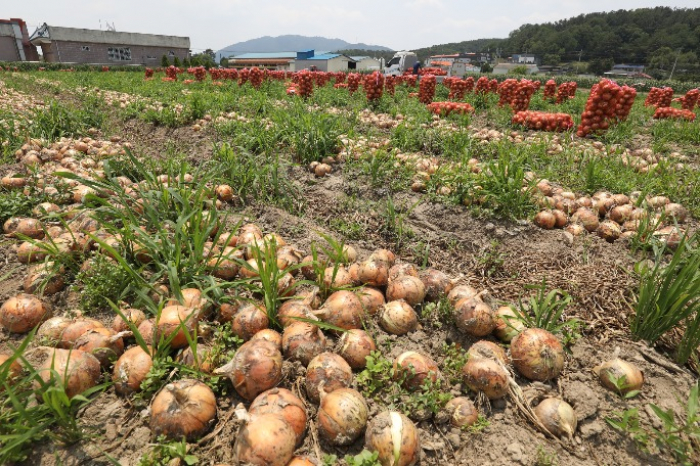South Korea’s agricultural product prices are expected to increase this year as the agriculture industry is suffering chronic labor shortages. Despite the government’s efforts to expand temporary foreign workers, the industry sees serious labor demand-supply imbalance.
Farm workers are in higher demand in August this year as the harvest season comes earlier than in previous years due to the persistent torrential rain in Korea and the upcoming Chuseok holiday from Sept. 9 to 12.
“We still need a huge workforce although the government designates temporary foreign workers to each farm. The labor cost per foreign worker soared from 140,000 won ($107.5) before COVID-19 to the current 200,000 won a day,” a potato farmer in Pyeongchang County, Gangwon Province said.
“Workload has more than tripled – three workers are doing 10 workers’ jobs on average,” said an onion farmer in Hampyeong County, South Jeolla Province. “New workers from Vietnam and Thailand have significantly low work proficiency these days, and they're not able to handle the jobs for the busy season,” the farmer added.
“We’re suffering from the rising labor costs of foreigners, as well as their increasing requirements such as setting air conditioners at workplaces,” said an official from National Agricultural Cooperative Federation (NongHyup) in Taebaek City, Gangwon Province.
The Korean government designated 12,330 seasonal workers, foreign workers who temporarily work during busy farming seasons, to 114 local governments across the country during the first half of 2022. The government will assign 7,388 seasonal workers during the second half, according to Ministry of Justice and Ministry of Agriculture, Food and Rural Affairs.
The country has ramped up the foreign temporary workforce from 3,612 in 2019 as COVID-19 accelerated young workers’ leaving rural areas and discouraged foreign workers to migrate to Korea.
The Korean government grants eligibility for seasonal workers to marriage migrants, Korean descents with foreign nationalities, short-term foreign workers and foreigners supported by the seasonal workforce partnership program between their homeland and Korea.
By Kyeong-Je Han and Mi-Kyoung Lee
hankyung@hankyung.com
Jihyun Kim edited this article.




